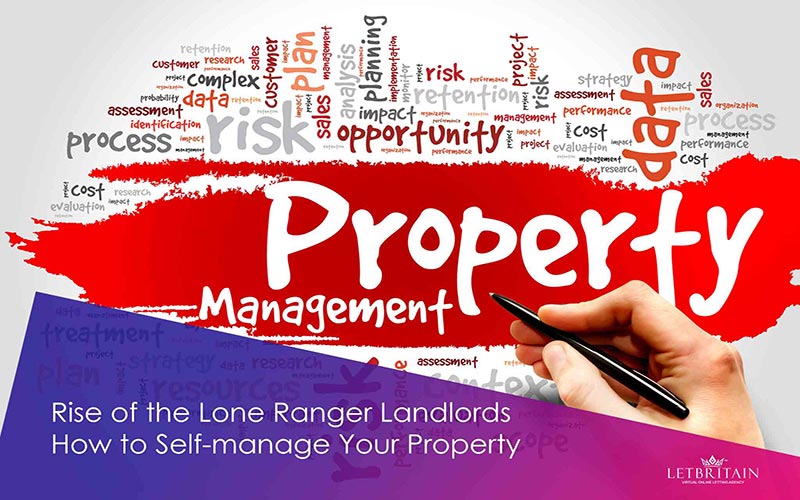
In the past few years, the online letting agents LetBritain, has noticed a rise in the trend of private landlords choosing to self-manage their property investments instead of hiring a traditional high-street letting agent (which we strongly advise against) or a property management company.
The main reasons behind the rise of lone ranger landlords is the desire to save money on letting agent fees and property management fees to better increase rental yields, as well as the need to gain more control over how their property is managed. But if you’re feeling really brave and wish to become a lone ranger, fully self-managed private landlords, then we’ve compiled some top tips to help you get started.
Read on to find out how you can successfully self-manage your property investment with our helpful landlord blog from online letting agents, LetBritian.
Treat your property investment like a business
If you want to become a truly successful private landlord then you will need to self-manage your property as if it was your business. This starts with approaching your property investment portfolio in the same way you would as working a full-time job. By remaining professional at all times, whether you’re communicating with your tenants, arranging for maintenance work to be carried out or keeping accurate records of accounts and paperwork, you will be much more successful and have everything in good working order.
Managing a property and statutory periodic tenancy isn’t always as easy as your online letting agents, property management firm or high-street letting agents are making it seem.
If you choose to self-manage your property investment, one of the easiest ways is to let online with an online rental agent, as there are several packages available at LetBritain that will still give you some autonomy over the day to day running of your property, whilst taking care of the smaller tasks for you.
Ensure you have the time it takes
One thing that all self-managed private landlords have in common is that they have enough time to dedicate to running their rental properties. If you’re in full-time employment, then you might struggle to keep up with the administrative work that managing a property investment portfolio can take, and many self-managed landlords work part-time, are retired or treat it as their full-time job.
Tasks such as managing the accounts and keeping accurate records for tax returns, working out what is a good rental yield and adjusting the rent price, dealing with tenants, such as carrying out tenant reference checks, and handling their deposits as well as advertising your property online can all add up and become a difficulty to manage alongside your personal life. So if you’re thinking of going it alone, then make sure that you are able to dedicate the necessary time to manage your property investment professionally.
Keep up-to-date on legal requirements and changes
In recent years the government have made several changes to property investment, from buy-to-let mortgages, right-to-tent tenant referencing checks and more. There’s a lot that you will need to stay abreast of when it comes to the legal requirements of managing a property investment and failing to do so could result in receiving costly fines or even prosecution in court in the most serious situations.
One of the benefits of hiring an online rental agent, like LetBritain, is that they have dedicated professionals who are up to date on the latest legal changes, so you can rest assured that your property is being run by the book.
Looking after the finances
When you’re self-managing your rental property, it will be your responsibility to ensure that your tenants are paying their rent on time, as well as other financial obligations such as paying off the buy-to-let mortgage, financing repairs, paying and submitting your self-assessment tax return and managing your tenant’s deposits and deducting costs where necessary when they move out.
You will need to put water-tight processes in place to ensure that you’re rent is being collected on time in order to pay off your buy-to-let mortgage each month. An easy way to do this is to ask your tenants to set up a direct debit in your tenancy agreement so that it’s easy for them to keep on top of their rent payments and for you to check that it’s coming in.
If after reading our guide, you feel that you would prefer some assistance with managing your property, we can help you with one of our diverse packages. From a simple tenant finder package and our package that covers the essentials, to a fully managed property package, which takes care of the whole process so you don’t have to, we’ve got you covered.
Find out more about our online letting agents for landlord services today!